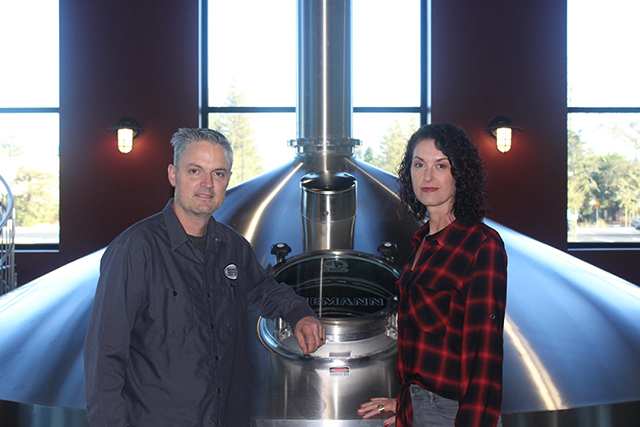
Natalie Cilurzo wants to welcome Russian River customers to a new, roomier and much more fan-geared “home.”
The first batch of Pliny the Elder began production in September at the new Windsor, California, production facility. It’s a new $50 million home for Cilurzo, one of the co-founders of the popular brewery along with husband Vinnie.
Cilurzo told Brewer in a sit-down interview at the 2018 Craft Brewers Conference in Nashville that she wanted to make sure the new place was able to accommodate consumers more than anything their original facility in Santa Rosa could ever do.
Because the brewery has become so popular in the past decade and a half, the customer experience has suffered. That changes with the opening of the new facility, located 10 miles northwest of the original base of operations.
The Windsor facility has two acres of free parking up front and one acre for an outdoor beer garden.
The pub will seat about 180 people with two bars; one outside patio and one inside along with a tasting room, which Cilurzo said is really more for filling growlers. It will have a gift shop and they can offer tours both guided and self-guided.
“We’re really building this brewery to relieve some pressure from our downtown pub, because that is one of our weaknesses,” she admitted. “We were becoming that place that nobody went there any more because it was too busy.
“It’s kind of a double-edged sword. It’s nice to show up and see a line outside on a Saturday morning. But you know it sucks to go to the grocery store and run in to an old customer and they say they don’t go there anymore because they can’t get in. Well, that sucks, because we really liked you as a customer.”
After hearing that for a long time, the Cilurzos saw a need to expand on customer service — and add some more production volume as well.
“Our customers do come from all over the world and we are super grateful for the popularity and the notoriety that has come with the success, but I also feel really bad for turning away business,” Natalie said. “Obviously, it’s a great problem to have — people waiting in line to get into your place. But I’d rather they waited 10 minutes rather an hour. There is a difference between that. Ten minutes is fine for a customer, even 20 minutes is not a big deal to get in the door get a beer and maybe wait a little longer for a table. But there’s nothing to do at our pub downtown.
“You get there and there’s really nowhere to wait. You can go down the street to go shopping or go to another bar or restaurant, but one of the things we’re really trying to accomplish at the new brewery is to satisfy all the needs that are customers have been asking for.”
Questions Russian River has had to face — about beer gardens, dogs and parking — all get to be answered differently now.
It also means tours, which has been a big question by consumers.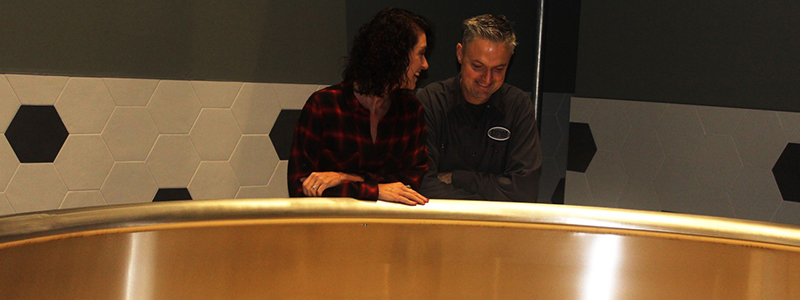
“Neither of our breweries right now can safely accommodate customers without being around forklifts and other dangerous things happening,” Natalie said. “So we are really excited to actually have designed this brewery around welcoming customers in a safe and fun — and hopefully — really exciting way.”
There are windows all along the front of the brewery, so the tour actually starts right when a consumer comes to the parking lot, she noted.
“We’ve designed it that way so that if you’re waiting in line to come in for a pint of Pliny the Younger — there’s a sidewalk that runs down the front of the brewery and if you are standing for a while waiting to get in, you’ll be able to look right in and see them brewing.
“You’ll see fermentation happening, the packaging line running. So the tour really is the moment you pull into the driveway. You can see what we have going on.”
Cilurzo said the 75 employees who work at the pub downtown relayed the feedback from customers, “because people like to tell you what they think,” she noted with a smirk.
“They really like to go online and give you reviews — Facebook and whatever other review websites they choose to slam you on or compliment you on.
“[We] just try to really pay attention to what our customers are asking for and do our best to accommodate.”
The new building — a 10-acre, 85,000-square-foot campus — is the first significant upgrade to Russian River since the Cilurzos took over in 2002, forming a group to buy the facility from Korbel Champagne Cellars.
That ownership group is now down to just the husband and wife duo since 2014, with Vinnie focused on production and Natalie doing much of the business aspects, including finance and HR, and even now she still runs the social media platforms daily.
Russian River doesn’t have a board of directors since they are an LLC. It’s Natalie, Vinnie and “our cats are the board of directors,” she joked.
The brewpub does have its own general manager (Michael Deas), and after getting up to 90 employees, Natalie handed the reins over to Carolyn Burke to be the director of human resources.
“When you work for your own company and you’re small, you do everything,” she said. “You are the wearer of many hats … a friend who also owns a brewery used to say and ‘I’m the doer of all and the master of none.’
“And I like to say that all the time, I just feel like I can do enough to get by on a lot of things but I haven’t really mastered anything. Vinnie, thankfully, likes to acknowledge that and say that I do all the rest of the stuff so that he can really focus on the beer and that’s been a key component to our successful business partnership.”
Although they have different roles in the company, they do come together for strategic decisions.
“There’s a lot of things that we work on together,” Natalie said. “He comes up with new beer recipes and if he just can’t come up with a beer name we’ll work together on that. As far as label design, we still do some of that in-house.
“Vinnie tends to oversee that because he knows just enough in Illustrator to be dangerous, but we also have other designers that we use that are outside and I think as our company grows, we’ll definitely be relying on using graphic designers more.”
In fact, Natalie’s mother did nine different labels of the brewery’s sours at one point.
“That was family, which is really fun,” she said. “We still operate kind of ma and pa, but we’re past that now.
“We’re too large of a company to be able to say that we’re a mom and pop company anymore. We are still family owned and operated, plus all of our awesome staff. So for us being able to identify key positions and find employees that best fit that role — that are a good fit for our company culture and working directly for the owners of the company … it kind of all goes together.”
But the original group of investors was friends and family, a total of nearly 30 people.
“At the time, there wasn’t really kind of any buyout plan,” Natalie said. “There was a clause in there of how to execute a buyout. The order in which buying somebody out would go, where Vinnie and I were always very first right to refuse anybody who wanted to sell their shares.
“They couldn’t go out on the street and say ‘Hey you want to buy? I’ve got 3 percent of Russian River Company.’ So from that we had already set ourselves up to be able to buy people out.”
They were able to buy a few original investors out with the cash flow they had on hand. As time went on and Russian River became more valuable, the duo ended up having to take on some debt to buy the remaining investors.
“We wanted to use our cash flow to pay off any debt and also to fund buying out investors so it just could be me and Vinnie, free and clear of anybody else and also give our investors a good return on their investment so that we’re not beholden to anybody but ourselves,” she said.
“I would say that everybody was very happy with their return on investment,” Natalie added. “We bought them out when we could afford it. It was friends and family mostly, a few people we didn’t know that were just fans of ours. Some of those people took their return on investment and went and invested in other breweries, which I think is really cool.”
Natalie pointed out that there are not a lot of commercial properties available in Sonoma County, which made it difficult to find a new spot for the new facility and the plans they had for it, but she said that the area is home and they wanted to keep Russian River in that area.
“People always ask why don’t we move, go to another state or find somewhere where there is more water,” she said. “And we always say that this is home for us. California is our home. We love Sonoma County. That’s where Russian River lives and that’s where we’re going to stay.”
The couple was determined to find property in the Santa Rosa area, particularly because they needed to be close to their brewpub downtown because there’s nothing changing for the downtown brewpub facility.
“Logistically, we wanted to stay close to downtown Santa Rosa. So after a long time searching — probably two years in and out of escrow on one piece of property — we negotiated on others,” Natalie said. “We learned a lot about commercial properties and landlords and real estate and all that.
“We learned that most people who have commercial properties want a piece of the action and would rather lease it to and develop for you than selling it to you and letting you go.”
In 2015, they looked at a piece of property and the people that were buying it had no intention of selling it to the Cilurzos.
“There were more than happy to sign a long-term lease and develop it and be involved in it,” she said. “A year goes by and the town of Windsor got really, really excited about us coming to Windsor. And then we fell out of escrow on the property for environmental reasons.”
The brewery was able to talk to another property owner in Windsor and let them know that they were very excited about moving there and asked if there was anything they could do to sell them that property.
“Don’t feel sorry for them — they made a fortune off it,” Natalie said with a laugh. “A very good profit. A good return on their investment in about four months.”
They closed escrow on June 9, 2016 — the same day the Cilurzos ended up buying a house to remodel and closed on escrow.
“It was a really weird day,” she said.
They immediately started forming a team for both projects, with a personal remodeling of a home along with breaking ground on their business home by May 2017.
It’s been a very slow and steady growth pattern for the brewery anyway. This expansion is actually the largest it may ever have, going from about 17,000 barrels a year to double that with the possibility for up to 50,000 barrels in the future.
“I don’t want to call it a happy accident, but we really focused everything … into the basket of making good beer and that’s really what we do,” Natalie said, noting that she still does the marketing, advertising and PR for the brewery for the most part. Any hype the brewery gets is because of the product they deliver.
“We don’t have some smart young person that is right out of college that masters social media; I do my best,” Natalie said. “But I think that the message is genuine and it’s from me and Vinnie. And I think that we’ve just really focused on just providing the best beer that we can. Highest quality ingredients, always innovating and pushing the envelope on different beer styles and trying to elevate the customer experience based on the feedback we get.
“I’d like to say beer speaks for itself and also we’re not flooding the market with beer. There is a thing called ‘scarcity marketing.’ We just happened upon it. I know about it. I studied marketing in school. But it’s not by design. We didn’t set out to make something that was exclusive that we would purposely hold back production. We have always brewed at a 100 percent capacity no matter what, no matter what size we were.”
That meant growing to 4,000 barrels at the downtown brewpub in Santa Rosa, and then growing to 17,000 barrels after adding on a production facility nearby.
“If we didn’t make sour beers and we didn’t age any beer, we could probably make a few thousand barrels between the two breweries, but that’s what we do,” Natalie said. “That’s what we specialize in and we are known for that. We like having a diverse portfolio, because we like to drink a lot of different things mostly, and our customers too.
“If we changed what we made, we could make more beer. We’re not into contract brewing. Our friends at Firestone were kind enough to help us out for a couple of months when we were down and installing a new brewhouse about three years ago. That was the only time we ever asked someone to make beer for us. It was one beer and it was basically just to help pay bills while we were down.
“They did a beautiful job and we are grateful for it. But contract brewing isn’t really our thing. Taking equity partners and selling out … those are all things that are not for me and Vinnie. We have so many friends who have taken on strategic partners recently or even decided to just sell completely to somebody else and that is totally fine with me and Vinnie. We can’t pass any judgment because at the end of the day you have to make business decisions that’s best for you and your business partners or investors and your employees. We have been able to set ourselves up so that we were able to make some decisions to stay small, to grow naturally and comfortably and organically and at our pace so that we were losing control of our brewery. And that’s where we are.”



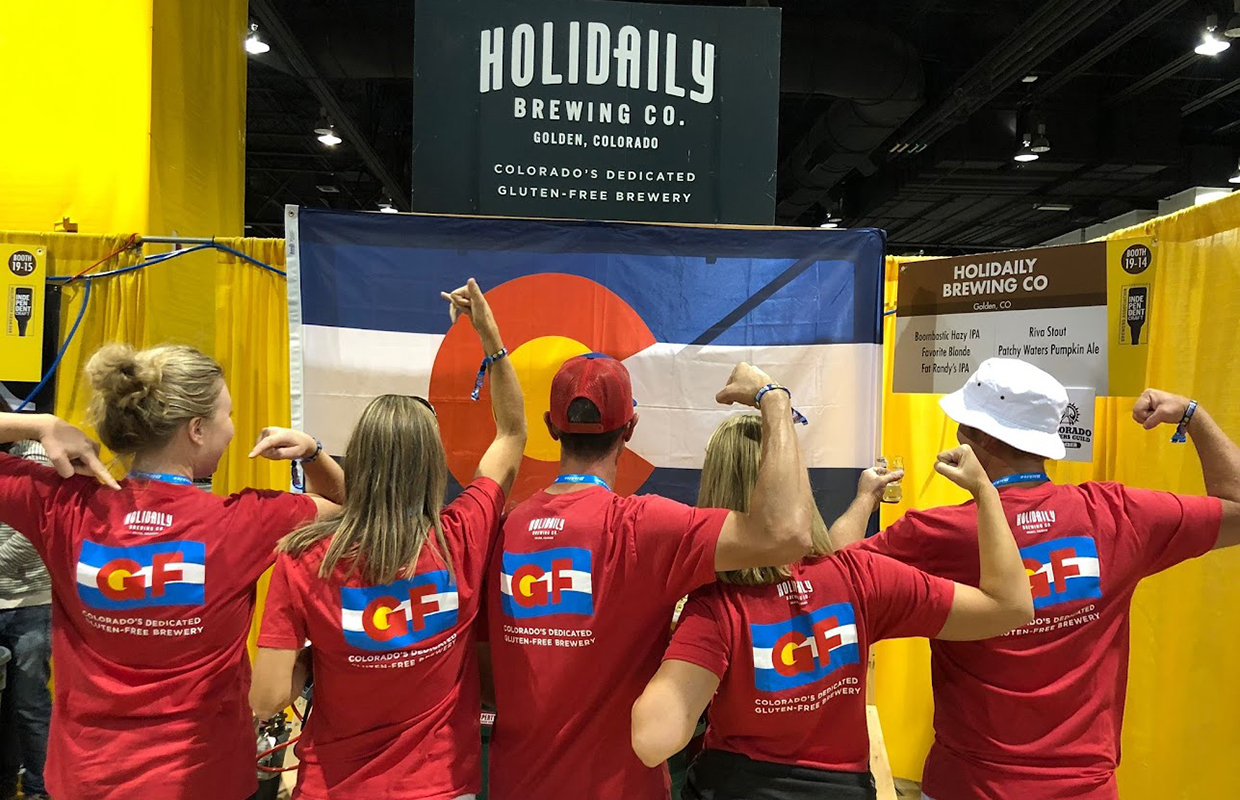
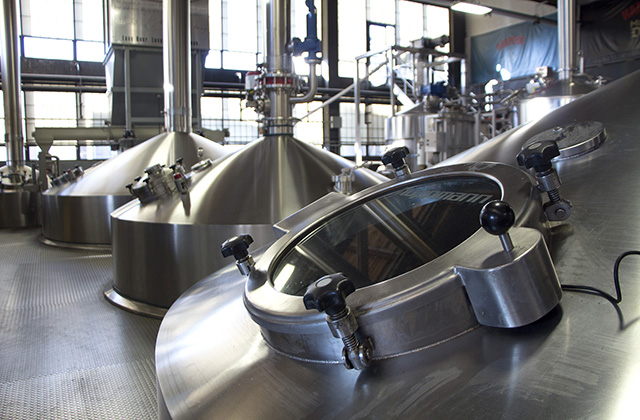
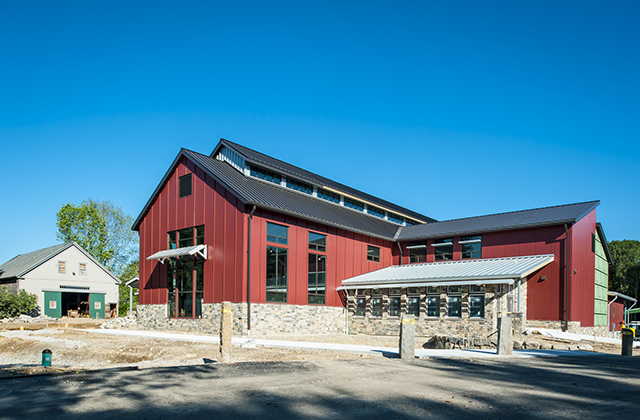
4 Trackbacks / Pingbacks